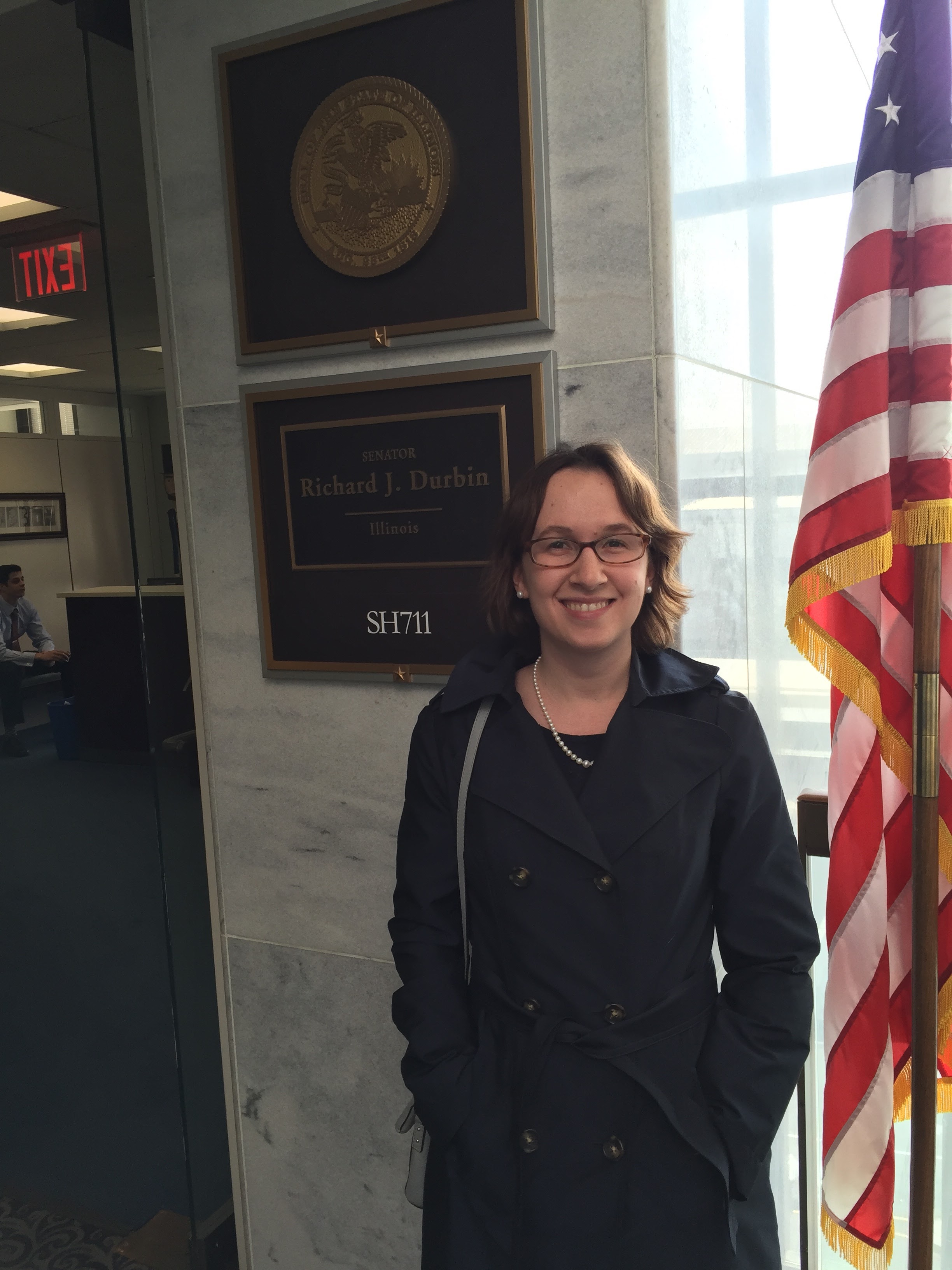SEA legislative blitz and bipartisanship in space
March 19, 2016Last month I went to D.C. to participate in the Space Exploration Alliance annual “legislative blitz.” The Space Exploration Alliance is a coalition of about ten of the major space advocacy organizations, including the Planetary Society, the National Space Society, the Mars Society, AIAA and the National Society of Black Engineers. Volunteers from these groups gather in Washington every February (when Congress is deciding what to do with the President’s budget request) to meet with lawmakers and push some talking points about the NASA budget. (Summary: Please increase the NASA budget.)
I had never done anything like this before, but my parents live near the Capitol in D.C. and I wanted to visit them anyway. I got the sign-up link in a Mars Society email, found some cheap tickets from Indianapolis, and decided to go for it.
I learned a lot in two days of meetings with congressional staffers. First, it wasn’t nearly as scary as I thought it might be. (Even when I ended up going to one meeting by myself, which was not really supposed to happen.) Congressional staffers are good listeners; it’s part of the job. Giving a quick pitch about something I care about turned out to be easy and even fun.

I learned other things, including that the Senate cafeteria has pretty good sushi, and I saw some chairs from House of Cards. But the best thing I learned was this:
Space is bipartisan. We went into both Republican and Democratic offices and had staffers tell us that their senator or congressperson was very pro-space. NASA has broad support from both parties, and we heard a lot of support for commercial space as well. Of course, “space is great, we love space” is different from “we will fight to increase funding for NASA.” That’s why the SEA lobbies Congress in the first place. Bipartisanship doesn’t solve anything on its own, but it’s encouraging to get support from people who can’t agree on almost anything else. I’m a liberal Democrat, and I had a great talk with a Republican staffer from California about STEM education for girls and installing a statue of Sally Ride in the Capitol.
The other SEA volunteers also had a mixture of political views. One of the organizers warned us, with a laugh, that we should probably stick to space talk if we wanted to get along. There was no shortage of liberal Democrats like me, but there were also Republicans and independents and people with weird views I don’t know how to describe. And that’s the thing—if space policy is your priority, you can easily end up with a political position that doesn’t fit either major party.
I was also happy to see that there was a decent number of women among the SEA volunteers, and that we weren’t all white. Space advocacy needs to look like the future if we’re going to talk about it.
In conclusion: if you’re even a little bit interested in participating in the legislative blitz next year, I recommend it! It wasn’t that scary. Information about the 2017 blitz will be updated here.